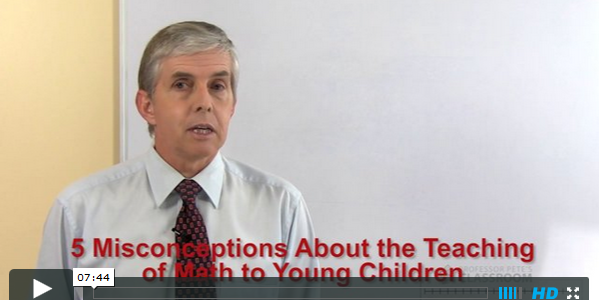You know, I reckon there are a lot of misconceptions around about how to teach your own children to learn math.
Here are the five worst:
1. Believing that technology has superseded the memorizing of times tables.
This can’t be true. Calculators and computers are amazing, but they can’t think: only a human can do that. Your child needs to know which math to use, and when, and recalling a times table when it is needed is an essential part of that process.
2. Allowing children to count on their fingers.
This one is huge. Counting is the basis of all math, really, but it is far too slow for anything beyond 1st grade or so. DON’T LET YOUR CHILD COUNT ON FINGERS. EVER. I’m not shouting, but you really have to get this one. Teach them to visualize the numbers and make connections between them. We teach a system of thinking strategies for this purpose.
3. Leaving the teaching of math to your child’s teacher.
This sounds like it’s a good idea, but really it’s not. Your child’s teacher is most likely a caring, dedicated professional, but she doesn’t have time to reach out to every child in her care with the level of time and attention that you could do, if you knew what to do (and I can help you with that too). Get involved!
4. Allowing your own math challenges to put you off trying to help.
It’s a funny yet sad thing that lots of adults will admit to being weak at math, whereas hardly anyone says they can’t read. Poor school results in math can slow you down, but chances are you’ve learned lots of math since school that you’ve needed to get by. Share it with your kids, and don’t give them any excuses to give up!
5. Trusting governments and education theorists to work out how best to teach math.
Something is happening around the world, to provoke governments in developed countries to have another look at how they teach math to children. The trouble is, while they are figuring out in committee what works best, your child can slip behind. My advice: go back to the basics you use in everyday math, add some thinking about how math is used in the real world, and hope that your government figures it out before your child graduates from high school. 🙂
